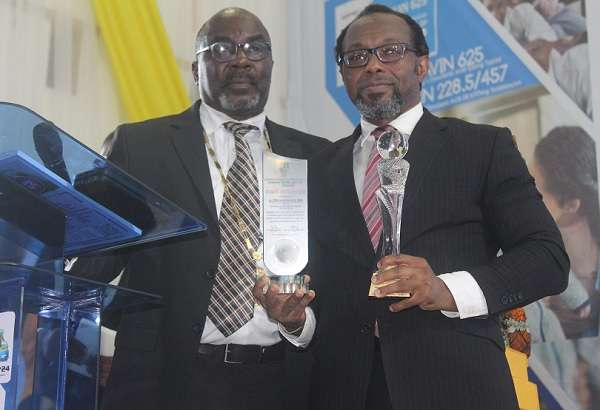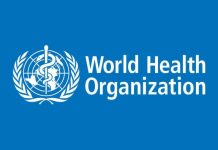
The Federal Government has assured that the nation’s pharmaceutical industry is being prioritised like never before, stating that the sector is now positioned for exponential growth. This development is expected to significantly enhance access to medicines for Nigerians and contribute to socio-economic progress across various sectors within and outside the country.
The Coordinating Minister of Health and Social Welfare, Prof. Muhammad Ali Pate, disclosed this in his keynote address at the opening ceremony of the 97th Annual National Conference of the Pharmaceutical Society of Nigeria (PSN), held in Uyo, Akwa Ibom State. The theme of the conference was “Transforming Pharmaceutical Innovation to Facilitate Equitable Healthcare in Emerging Economies”.
Prof. Pate, who was represented by the Director-General/CEO of the National Institute for Pharmaceutical Research and Development (NIPRD), Dr Obi Peter Adigwe, called on all stakeholders in the pharmaceutical industry to collaborate with the government to actualise the prioritisation agenda. This, he said, will help to increase access to safe and high-quality healthcare in the country.
Discussing recent innovations introduced to transform the nation’s healthcare delivery system, the minister emphasised that there is empirical evidence demonstrating that the pharmaceutical industry has been prioritised and is now set for growth that will revolutionise the entire healthcare sector.
He noted that when the present administration began, the Federal Government, through the Ministry of Health, initiated various programmes and interventions aimed at enhancing medicine security and repositioning the health sector. According to him, the reforms focus on four thematic areas: Governance, Population Health Outcomes, Unlocking the Healthcare Value Chain, and Health Security. He added that within the first two months, one of these categories was conceptualised, leading to the establishment of a national coordination mechanism and the appointment of a national coordinator.
Pate disclosed that one of the four areas has already resulted in numerous innovations and interventions, including the recent presidential executive orders to boost local production of healthcare products and reduce the cost of healthcare equipment and consumables.
According to him, “Only one of these thematic categories has secured a presidential executive order. This includes enhancing pharmacy’s role not just in medicine production but also in areas like clinical trials and consumable production. The thematic area ‘Unlocking the Healthcare Value Chain’, also known as the Presidential Value Chain Progress, has led to significant policy reforms.”
The minister commended the collaborative efforts of policy formulators, including the President, the Ministry of Health, and the National Assembly, as well as those implementing these policies. He stated that Nigeria now has a remarkable team of health sector policymakers like never before.
He further revealed that the government is planning to establish clinical trial centres across the country and has secured an €18 million vaccine research grant from the European Union (EU). This initiative is part of efforts to transform the nation’s health sector. Earlier this year, the National Plan for Vaccine Research and Development and Local Production (2024-2034) was presented in Abuja, with more interventions expected to follow.
The minister highlighted the presence of a robust policy framework to unlock the value chain, supported by capable implementation partners such as the PSN, the Nigerian Association of Pharmacists & Pharmaceutical Scientists in the Americas (NAPPSA), the Association of Industrial Pharmacists of Nigeria (NAIP), and the Association of Community Pharmacists of Nigeria (ACPN), among others.
“These implementation partners are crucial to unlocking value chain initiatives, which will grow the sector, boost the economy, improve access to medicine security, and positively impact lives,” the minister stated.
Under the value chain initiatives, there are about 15 key focus areas, one of which is medicine security. According to Pate, medicine security involves ensuring sufficient local control over drug production to guarantee sustainable access to affordable, high-quality pharmaceuticals.
He cited the enactment of Executive Order No. 3, which mandates public institutions to procure locally manufactured drugs. Although some scepticism exists regarding its full implementation, the minister assured that a high-level stakeholder meeting in Lagos would address this, involving the Governor of the Central Bank of Nigeria (CBN), Chairman of the Federal Inland Revenue Service (FIRS), and the Comptroller General of Customs, among others.
The minister also mentioned that a meeting held in January 2024 introduced an entity planning to establish a commodity manufacturing line and vaccine production facility in Nigeria. Several pharma companies have expressed interest in this project. As part of the presidential value chain progress, there will be grants, low-interest loans, procurement opportunities, and increased employment in the pharma sector, all aimed at enhancing medicine security and advancing socio-economic goals.
While revealing that the health ministry is collaborating with other organisations to incorporate artificial intelligence into healthcare delivery, the minister urged pharmacists to embrace this innovation. He cautioned that if Nigeria does not expand its capacity to capitalise on upcoming opportunities, other countries like India, China, and South Africa could dominate the market.
Highlighting a critical gap, the minister stated that Nigeria has only 170 pharma manufacturers serving a population of 210 million, a ratio of 1 manufacturer to 1.3 million people. In contrast, India has 5,000 pharma manufacturers for a population of 1.311 billion, a ratio of 1 manufacturer to 260,000 people. He, however, assured that the health ministry is working diligently to address this gap and aims to position Nigeria as the “India of Africa” in drug production.
Prof. Pate reiterated that the Nigerian pharma sector is well-positioned for exponential growth, which will increase access to medicines, stimulate socio-economic development, and improve healthcare access for citizens. The ministry’s interventions are expected to drive employment, assure medicine security, boost GDP, facilitate export of pharmaceuticals, and promote technology transfer.
In her virtual address, the Director-General of the National Agency for Food and Drug Administration and Control (NAFDAC), Prof. Moji Adeyeye, commended the theme of the conference, noting its alignment with Sustainable Development Goal 3, which aims for quality healthcare for all by 2030. She reaffirmed NAFDAC’s commitment to collaborating with PSN and the pharma industry to achieve this goal.
Meanwhile, the Chairman of the Pharmacy Council of Nigeria (PCN), Hajia Wasilatu Giwa, emphasised the need to address rising medicine costs and the impact of the ‘japa’ syndrome. She urged stakeholders to focus on Nigeria’s healthcare renewal agenda and called on PSN to partner with relevant agencies to eradicate fake drugs in the country, stressing that only qualified pharmacists should handle pharmaceuticals.
The 97th PSN conference featured several plenary sessions, the election of new executive members, and concluded with a closing banquet where various award winners were announced. The high point of the event was the announcement of the newly elected president of the Society, Pharm. Ibrahim Tanko Ayuba, and the swearing-in of other executive members.










